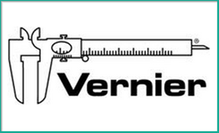
A panel of NSTA-appointed experts chose these individuals based on their innovative use of data-collection technology in the science classroom. Each winning educator received $1,000 in cash, $3,000 in Vernier products, and up to $1,500 toward expenses to attend the annual NSTA National Conference in St. Louis, Missouri on April 11–14, 2019.
The 2019 Vernier/NSTA Technology Award winners include:
Category: Elementary School
Covey Denton, Greenfield School, Wilson, NC
Covey Denton helps students form real-world connections by using Vernier sensors to study the arctic biome and the animals that live in these cold climates. Students use Vernier temperature probes to study the thermal insulation qualities of feathers, air, and blubber to discover the unique adaptations that allow arctic animals to survive.
Category: Middle School
Rachel Arbor, Altona Middle School, Longmont, CO
First-year teacher Rachel Arbor uses data-collection technologies to encourage students to make connections among interdisciplinary subjects such as science, math, and music. Through hands-on collaborative work, students study how energy and waves move through our world. Students are able to directly observe scientific phenomena such as albedo, amplitude, frequency, and velocity.
Christopher Sindt, Washington Middle School, Dubuque, IA
As part of a STEAM-based project, Christopher Sindt challenged his students to plan, create, design, implement, and market a model roller coaster track. Students used photogates to track the velocity of a marble through the track and validate their claims that their roller coasters were safe for patrons using accurate data.
Category: High School
Anne Marie Lavelle, St. Edward High School, Lakewood, OH
Ann Marie Lavelle believes it is important for students to understand the environmental impact of pollution on freshwater ecosystems. Students used Vernier technologies to conduct scientific investigations on water quality samples to study the impact of agricultural runoff, pollution, algae blooms, destruction of habitat, and beach fouling from nearby Lake Erie.
Jocelyn Virtudes, Gaithersburg High School, Gaithersburg, MD
In a co-taught chemistry class, special education/science teacher Jocelyn Virtudes encouraged students to explore how the identity and concentration of Hofmeister anions impact the behavior of macromolecules such as egg whites. Students used Vernier temperature probes to record temperature data during clear-to-cloudy transitions. The scattering of light as salt concentration increases was also studied using a turbidity sensor.
Patrick Wells, Holy Spirit High School, Conception Bay South, NL Canada
Patrick Wells believes sensation and perception are important for the study of science and uses Vernier data-collection devices to support student inquiry. His student-centered learning model encourages students to observe, think, challenge prior misconceptions, and resolve questions with group members and teachers, leading to the formation of durable memories.
Category: College
Seth Barrett, Muskingum University, New Concord, OH
Assistant Professor of Chemistry Seth Barrett has students study the chemical kinetics and mechanism of the oxidation of iodide by iron (III) ions using Vernier instrumentation and data-collection software in his upper-level chemistry course. Based on proposed elementary steps of the reaction, students determine the rate expression and use the initial rates method to determine which of the steps in the proposed mechanism is rate-determining.
To learn more about the 2019 Vernier/NSTA Technology Awards and to find details about the 2020 awards program, visit www.vernier.com/grants/nsta/.
About Vernier Software & Technology
Vernier Software & Technology has led the innovation of scientific data-collection technology for 38 years. Vernier was founded by a former physics teacher and employs educators at all levels of the organization. The company is committed to teachers and to developing creative ways to teach and learn science, technology, engineering, and mathematics (STEM) using hands-on science. Vernier creates easy-to-use and affordable science interfaces, sensors, and graphing/analysis software. With worldwide distribution to over 150 countries, Vernier data loggers are used by educators and students from elementary school to university. Vernier technology-based solutions enhance STEM education, increase learning, build students' critical thinking skills, and support the science and engineering practices detailed in the Next Generation Science Standards (NGSS). The Vernier business culture is grounded in Earth-friendly policies and practices, and the company provides a family-friendly workplace. For more information, visit www.vernier.com.












